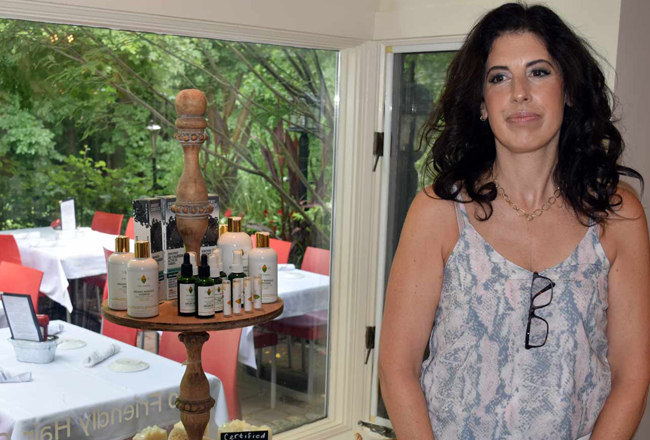
Kelli Custer is an associate professor of writing, linguistics and creative process at Western Connecticut State University (WCSU) and is entering her sixth year as coordinator of the school”™s Writing Center. In May, she received the 2018-19 Board of Regents System-Wide Teaching Award for Connecticut State Universities, presented by the board of the Connecticut State Colleges and Universities system. When she received word of the award, she was flabbergasted.
“My students wrote a letter of support, which honestly would have been fine on its own,” she said. “It”™s like winning the Oscar as a teacher.”
WCSU”™s Writing Center, according to Custer, is available to “provide support for all writers. Our point is to provide help for students at any stage of their writing and at any level. It”™s not just the beginning writers.”
Unlike the writing centers at other schools that have specific curriculums, the WCSU approach is tailored to the student”™s specific needs.
“It is not a developed curriculum,” Custer continued. “When a student comes in, they have an assignment with them or we get the assignment from the professor. They meet with a tutor who is either an undergraduate or graduate student and they work together on what they feel needs the most help. They work together on the project in the space of 45 minutes.”
Students do not have to pay a fee for the tutoring, and Custer noted that 55% of the Writing Center”™s students arrive with a recommendation by a professor. She added that 35% of the students that seek out assistance in the Writing Center are freshmen, adding that it was not unusual for so many newly minted college students to experience trouble with their assignments.
“It is very common when you suddenly encounter very different writing projects than what you had before,” she said.
Last year, the WCSU Writing Center recorded about 1,200 visits, and this semester has a staff of 10 tutors ”“ Custer also refers to the tutors as “consultants” ”“ and they are on duty to respond to a variety of needs. Tutors are not assigned to individual students, although a student can request to work with a specific tutor for assistance that requires multiple visits. Custer recruits her tutors via faculty recommendation as well as direct inquiries from students looking to be part of her team. But not everyone pursuing this work makes the grade.
“They need to have a solid foundation of writing and language, but they need to be able to communicate thoughts and that is not always the same thing,” Custer advised. “You will find the words ”˜Be Kind”™ all over in Writing Center, and that has to be in place in order for students to be able to work. I can teach writing elements that they need bolstering on, but I can”™t teach kindness.”
Indeed, the emotional aspects of struggling students trying to ace a written report requires a bit of extra care from the tutors. “Sometime we just need to quell anxiety ”“ that feeling of ”˜I can”™t do this,”™” she said. “We say, ”˜We have a lot of time and you”™ve come to the right place.”
Among the primary stumbling blocks that the Writing Center deals with are project organizational challenges, which Custer explained could span “developing and supporting an argument and some grammar arguments. We work a lot with documentation and citation and how to avoid plagiarism. We sometimes help students find resources they need.”
Custer measures the success of the Writing Center”™s work through a series of pre- and post-surveys.
“When a student first comes in, they fill out a quick survey about their confidence level with the current assignments,” she stated. “Afterwards, they do a quick survey on how they feel about the assignment. And if they”™ve been here before, they are asked if they feel they”™ve improved in their confidence as a writer. There is always an up in the confidence level ”“ and confidence is a funny ranking because it is a self-perception. But there is such a connection between a sense self-efficacy and growth. If a student sees they are able to improve and recognize it, that indicates they will continue to do so.”
But the most satisfying measurement of success for Custer comes when the students are ready to leave WCSU for the wider world.
“I get to see them at graduation,” she said. “The way we do graduation here at Western, faculty lines the walkway and we get to do high-fives and hugs, and it”™s always exciting for me because I”™ve seen students who”™ve been here.”




















